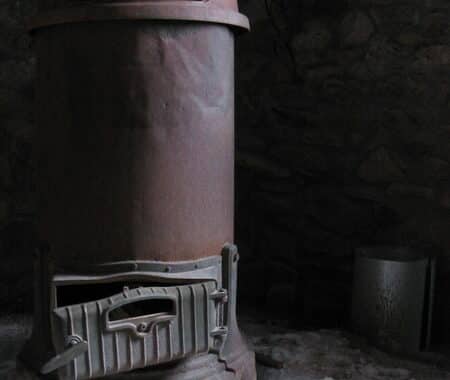GUARANTEED COMFORT & AFFORDABILITY
Whether you need heating, air conditioning, or indoor air quality services, we have an HVAC contractor ready to handle the job.
Working Hours : Monday to Friday (7am - 5pm)

Corrosion is rarely a good thing in any circumstance, since it means a severe weakening of metal. If you’re asking whether your furnace can corrode, it’s likely because you’ve already noticed it on your gas furnace and wonder if it means the furnace is finished.
Furnaces absolutely can corrode, and understanding why and what to do about it are critical for your home heating needs as well as safety. In most cases, a corroding furnace does need a replacement.
Below we’ll take a closer look at why corrosion can start on a furnace and why it creates a serious problem.
At first, it may seem odd that a gas furnace, which doesn’t use water to create heat the way a boiler or water heater does, would corrode. (Rust is, after all, the most common type of corrosion, and it occurs because of the contact of water and metal in the presence of oxygen.) So what agent would cause a gas furnace to rust?
Although gas furnaces don’t use water as part of their heating process, they do produce water vapor as a byproduct of transferring heat from the combustion gases in the heat exchanger to the air moving into the ductwork. As the combustion gases cool, they turn into vapor that contains water moisture as well as other chemicals. The water and chemicals can react with the metal of the heat exchanger and trigger corrosion.
Fortunately, furnaces are designed to rapidly vent out the byproducts of combustion through a flue to prevent extended exposure. But years and years of use can eventually allow corrosion to take hold in the metal. The corrosion can also start in the vent pipe or anywhere else the combustion vapors move. If a furnace isn’t venting properly, something that can occur if the heater isn’t regularly inspected and maintained, the corrosion process will speed up and may cause a furnace to corrode years earlier.
There’s another way for water to get to the furnace: the air conditioner’s condensate system. A standard HVAC configuration puts the AC unit over the furnace. Leaks in the condensate pan from the air conditioner will land on the furnace and may trigger corrosion.
The main reason you don’t want a corroded gas furnace is because it creates a major safety hazard. Corrosion on the heat exchanger will weaken its metal and lead to cracks that can allow toxic combustion gases to escape—right into the air moving into the house. Cracked heat exchangers require immediate attention from HVAC professionals, and in most cases it’s less costly to replace the entire furnace rather than only the heat exchanger. This is definitely the tactic we recommend if the furnace is 15 years old or more.
The best way to stop corrosion from happening is to schedule professional maintenance for the furnace annually. During maintenance our technicians inspect the furnace for signs of corrosion and ensure the proper exhaust gas ventilation.
If you notice corrosion on your gas furnace, stop using it and immediately call us to help you with your heating in Parker, CO.
Leave a Reply